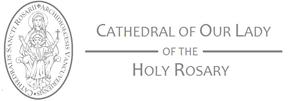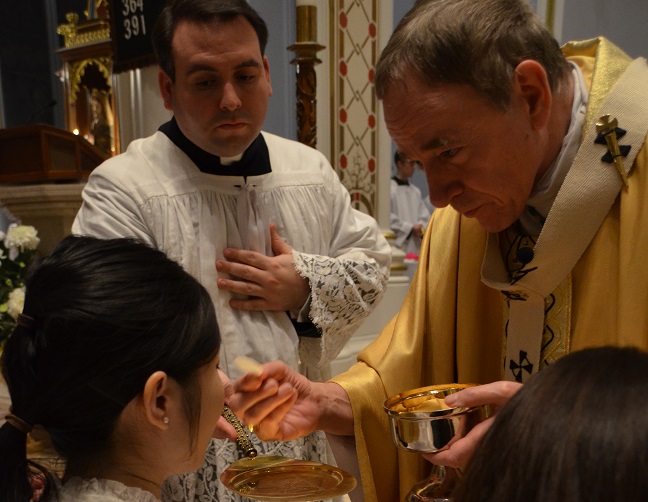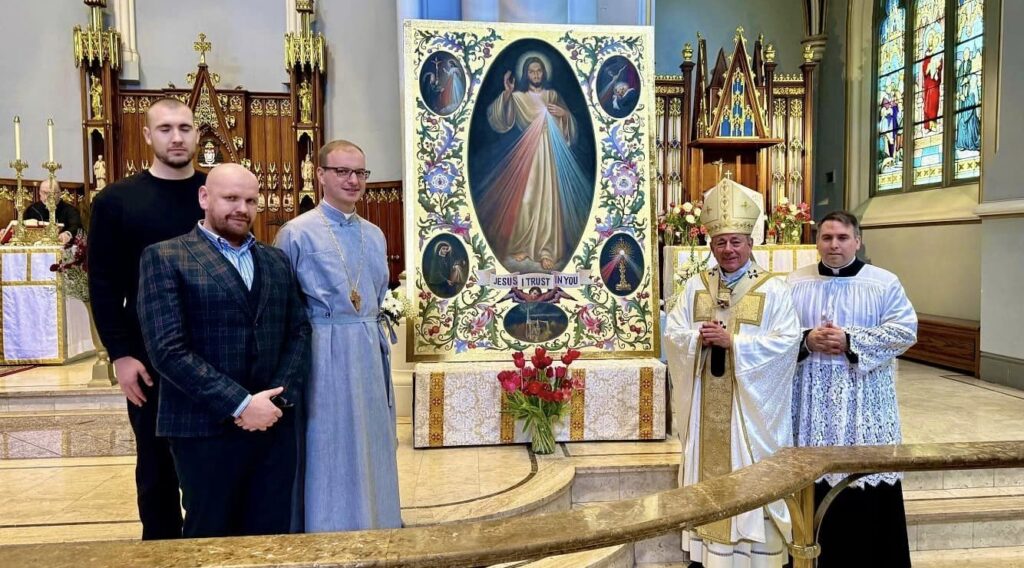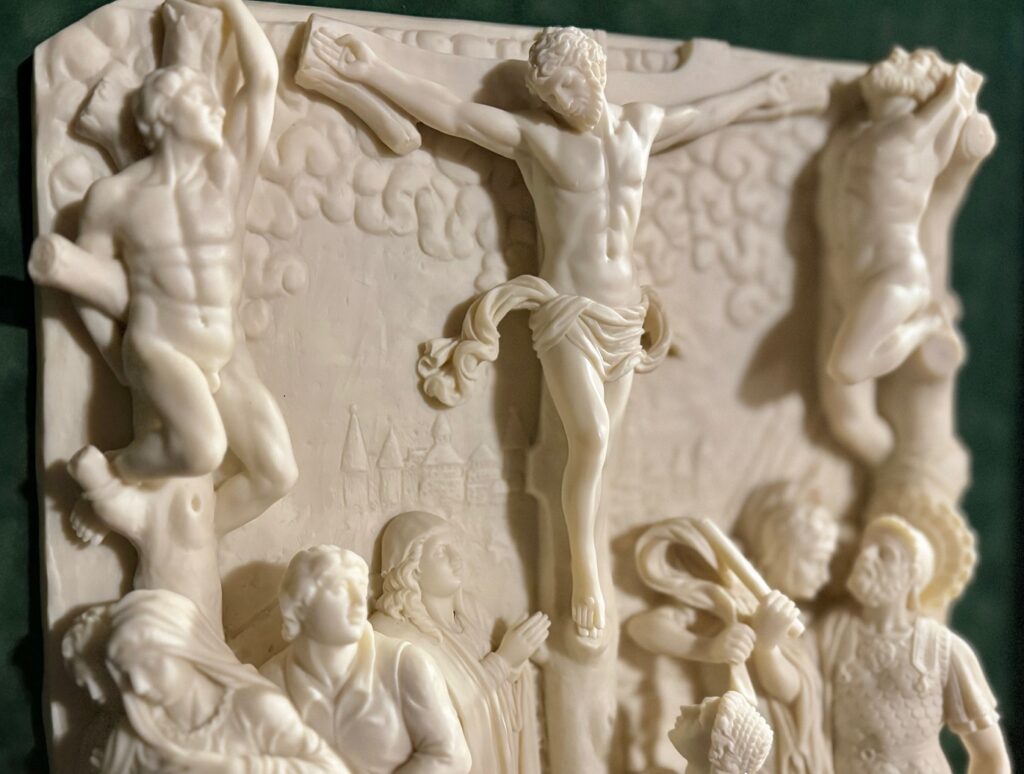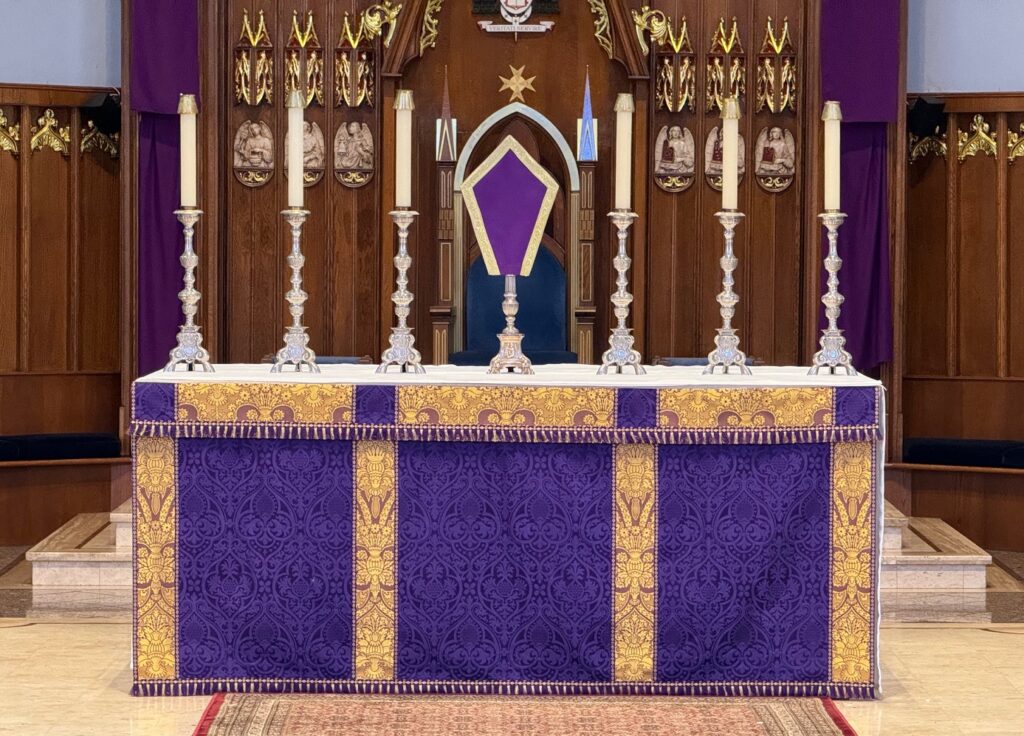The Eucharist is the most important of the seven sacraments, because it is in this and in no other sacrament that we receive the very body and blood, soul and divinity of our Saviour, Jesus Christ. There are many graces that flow from the faithful reception of this most sublime of sacraments. Communion then is primarily an encounter with Jesus Christ, for when we receive Holy Communion into our body we are in turn integrated into His. Furthermore, the Eucharist is the Sacrament which builds the Church, because by receiving the Eucharist we are united to Christ. It is also in the Eucharist that Christ unites all the faithful into one body, the Church. Communion renews, strengthens, and deepens this incorporation into the Church already achieved by Baptism. In Baptism, we have been called to form one body, the Eucharist fulfills this call as “The cup of blessing which we bless, is it not a participation in the blood of Christ? The bread which we break, is it not a participation in the body of Christ? Because there is One Bread, we who are many are one body, for we all partake of the one bread.”{1}
The question then arises, why does the Catholic Church not permit the reception of Holy Communion from other Christians, especially since some denominations allow Catholics to receive communion at their services? In other Christian denominations communion is seen primarily from the point of view of sharing a common faith in Jesus Christ, and of sharing a meal. While this is praiseworthy and indeed has its own beauty, we Catholics do not simply see the Eucharist as a meal, but as mentioned earlier, the reception of the actual body of Christ. While we share a common faith with our separated brothers and sisters, we as Catholics do not see Communion primarily as sharing of a common faith. Furthermore, most Christian denominations do not believe in the Eucharist in the same way that we do. For us the Eucharist is not dependent on the faith of the one who receives communion, the Eucharist is the Body of Christ whether the recipient believes it or not. Moreover, some of the Christian denominations that have a regular ‘Eucharistic’ celebration lack valid orders so they are not able to consecrate a real Eucharist.{2} For us Catholics ‘Communion’ is not even a sacramental issue, if that were the case we would be in communion with the Orthodox Church for it has valid sacraments. For us communion is an issue of hierarchy: Catholics are in communion because we are in Communion with the Pope.
So when we come to Holy Communion and the priest says: “The Body of Christ”, to which we respond “Amen”, that “Amen” is much more than “so be it”, but it is saying yes to everything that the Host represents, all the teachings of the Church, not just on the Holy Eucharist, but in all things that the church teaches. As St. Augustine reminds us: “If you are the body and members of Christ, then it is your sacrament that is placed on the table of the Lord; it is your sacrament that you receive. To that which you are you respond “Amen” (“yes, it is true!”) and by responding to it you assent to it. For you hear the words, “the Body of Christ” and respond “Amen.” Be then a member of the Body of Christ that your Amen may be true.”
And while we may not be able to fully understand everything that the Church teaches, we believe that the Church possesses the grace to lead us to salvation. Scripture also reminds us that the Eucharist is among the highest signs of Christian unity: “The chalice of benediction, which we bless, is it not the communion of the blood of Christ? And the bread, which we break, is it not the partaking of the body of the Lord? For we, being many, are one bread, one body, all that partake of one bread.”{3} This is why non-Catholic Christians are not invited to receive Holy Communion, for if we were to do so it would be to declare a unity that is still nonexistent.
Another reason for why non-Catholics are not invited to Holy Communion is because we want to safeguard them, since many Protestants reject the teaching of the Real Presence of Christ in the Eucharist. St. Paul reminds us that it is dangerous for one who does not believe in the Eucharistic Real Presence to receive Communion, “Because a person who eats and drinks without recognizing the body is eating and drinking his own condemnation. That is why many of you are weak and ill and a good number have died”. {4}
Some think that the Church is snobby for not allowing non-Catholics to receive communion, but this is not the case at all, rather it is a challenge to catechize on what the Eucharist is and in what we believe. It’s an opportunity to evangelize, to bring to the Church those who are seeking a deeper union with Christ. Ultimately, we dare to hope, that one day we will all share of the same Eucharistic bread, and we’ll be in one body that is the Church.
Fr. Pablo Santa Maria
______________________________________________
Notes:
1 Catechism of the Catholic Church, N. 1396
2 An example of this would be the Anglican Communion. Anglicans do not posses valid orders and as such they do not have the Eucharist. (http://www.papalencyclicals.net/Leo13/l13curae.htm)
3 I Cor. 10, 16 – 17
4 I Cor. 11, 29 – 30
